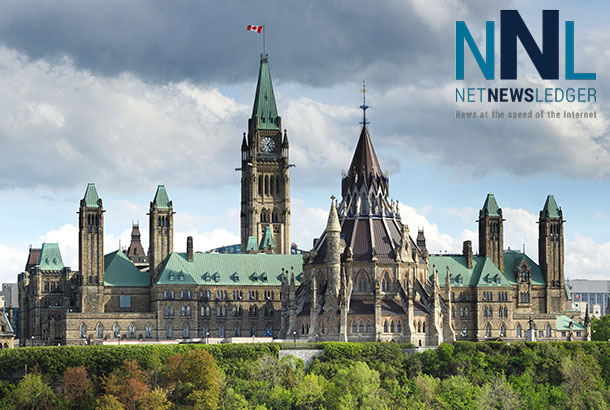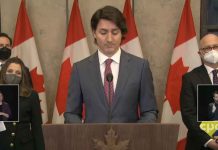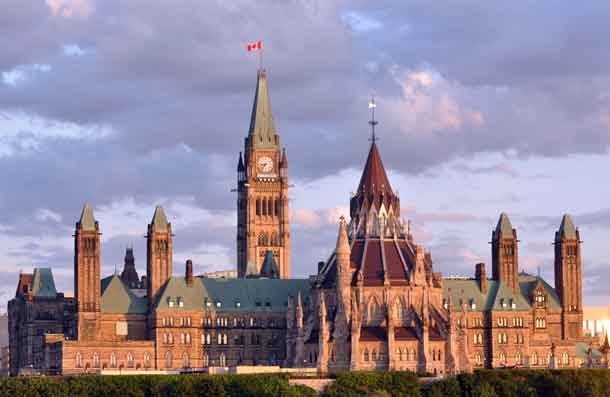 Relax party discipline to dent the iron control of a majority government, forcing it to make compromises and behave less like a dictatorship
Relax party discipline to dent the iron control of a majority government, forcing it to make compromises and behave less like a dictatorship
By Doreen Barrie
Adjunct assistant professor
Political Science Department
University of Calgary
CALGARY – Politics – Start talking about parliamentary reform at a cocktail party and watch everyone melt away. But despite being an eye-glazing topic, there are good reasons why Canadians should take interest.
The Liberal government proposes changes to House of Commons procedures to create “greater accountability” and to “empower members to more fully participate in the legislative process.” Proposals include setting aside one day a week for questions directed at the prime minister and streamlining procedures.
If greater accountability and empowerment of MPs is the goal, the government is going about it in the wrong way.
Our system’s Westminster-style protocol is woefully misunderstood. It’s subtle, clever and flexible, but its intricacies are not well known to many Canadians.
The system is adversarial: it’s the duty of opposition parties to scrutinize bills and point out flaws. In a majority situation, there are few devices to trip up the government. One is question period, which, unfortunately, is regarded by most Canadians as an unseemly display of childish behaviour. If by childish one means attention-seeking, this is true because it’s a clarion call to Canadians to take notice.
Question period is the most powerful instrument of accountability in our system. The prime minister and cabinet must justify their actions on a daily basis. Unlike other jurisdictions, like Britain, they get no advance warning about what might be lobbed at them. And to garner attention, opposition parties often have to resort to behaviour that they find distasteful.
Another major part of an opposition MP’s job is to examine legislation closely in committees. This is where the government wants to “streamline” proceedings by limiting intervention by members to 10 minutes.
Dictatorships run like well-oiled machines, but democracy is messy and inefficient.
Nevertheless, time is of the utmost importance for the government as it strives to get bills through Parliament expeditiously. The opposition, on the other hand, tries to slow the process when they believe legislation is flawed. They’re buying time to ensure their amendments and objections are fully considered.
Often those tactics seem automatic. But if a majority government is ramming bills through, it can be necessary for the opposition to slow it down.
The procedural reform proposals being made by the Liberals would hamper efforts to buy time.
As well, discussion about party discipline, which is extremely rigid in Canada, is conspicuously absent from the government’s proposals. Yet in their election platform two short years ago, the Liberals promised free votes for their MPs – with generous exemptions. It would be a huge step forward to loosen party discipline – short of free votes – except on serious matters like the budget and confidence votes.
In the United Kingdom, a “three-line whip” specifies how MPs are expected to vote. During a hunt, an individual whips the hounds back into the pack, as the political whip does with MPs. They know how the party wants them to vote based on the number of lines underlining the name of the bill. Three lines signals they must attend and vote along party lines; two lines provide MPs with flexibility; and one line frees them to vote as they choose.
And even when a three-line whip is in effect, British MPs sometimes defy their party leadership. In 2011, 81 Conservatives voted for a motion calling for the Brexit referendum despite instructions to the contrary.
MPs are sometimes compared to performing seals, banging their flippers on their desks to express approval and voting as they’re told. Given the wealth of expertise and experience among MPs, it’s tragic that they’re unable to put their skills to use. And voters are frustrated that their MPs are so craven.
Party discipline allows governments to maintain majority support in the House and remain in office. However, it wouldn’t be disastrous if some MPs were able to break ranks, on either side of the House.
Our winner-takes-all electoral system can create majority governments with a minority of the votes. These governments then purport to speak for everyone, ignoring opposition voices, and refusing to co-operate and collaborate across the aisle.
If party discipline were relaxed, it would dent the iron control of a majority government, forcing it to make compromises and behave in a less autocratic manner. What better way to “empower members to more fully participate in the legislative process”?
Parliamentary reform may not be sexy, but it’s the next best thing to electoral reform. Perhaps groups like Fair Vote Canada should hitch their wagon to this issue and bring about welcome changes through the back door.
Doreen Barrie is an adjunct assistant professor in the Political Science Department at the University of Calgary.
© 2017 Distributed by Troy Media
The views, opinions and positions expressed by all columnists and contributors are the author’s alone. They do not inherently or expressly reflect the views, opinions and/or positions of NetNewsLedger.






